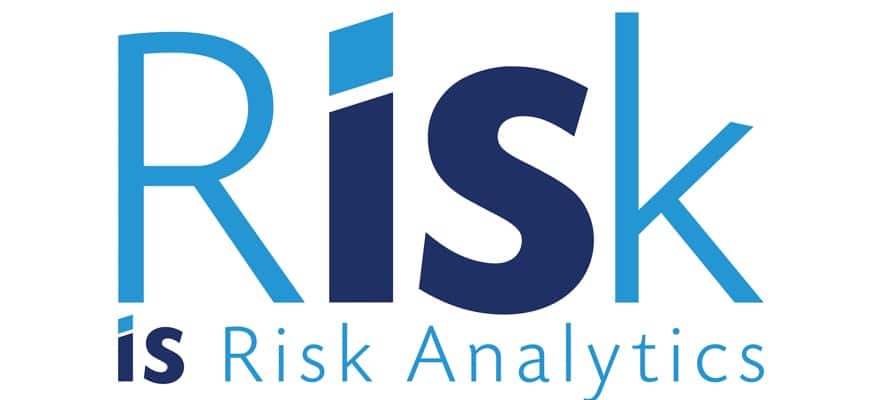It has been nearly ten months since IS Risk Analytics launched, following an ambitious branding and risk management services initiative. Since then, the group has undergone a number of different developments and changes that have helped collectively streamline its overall product lineup.
Time is running out to get your seat. Register today!
In advance of his participation in the risk management seminar at the 2017 London Summit, Finance Magnates sat down with Jeff Wilkins, Managing Director of IS Risk Analytics. Mr. Wilkins provided a primer on the upcoming seminar as well as an update on the group since its launch earlier this year.
We are approaching a year since the launch of IS Risk Analytics (ISRA) following the acquisition of Think Liquidity ’s assets by IS Prime. How has the year been?
We couldn’t be happier with how things have gone since the acquisition. The teams at IS Prime and ISRA have meshed nicely and we have a full end-to-end solution for our broker clients. The value we bring to our clients on a daily basis is unparalleled in this industry and the demand for our services is stronger than ever. Furthermore, the ability to leverage the group’s technology expertise has meant that our offering is even more robust and scalable.
When it comes to managing risk and maximising revenue, do you tend to encounter similar situations from all the brokers you work with or is every broker a unique case?

Jeff Wilkins
Every broker is unique but there are common misconceptions when it comes to risk management that we run into on a regular basis. These misconceptions include (amongst others) the assumption that increasing volume always results in an increase in profits, that clients that lose money should always be left unhedged, and that capturing 100% of the client “drop” should be the goal of a risk management strategy.
Contact attendees and maximize your experience with the Finance Magnates London Summit app
Part of the value we offer is that we have the experience to know why these statements are untrue. We can also demonstrate to brokers how shaking these misconceptions and developing a comprehensive risk management strategy can lead to revenue optimization.
We have seen an increasing number of brokers adding Cryptocurrencies to their product portfolios. What challenges do cryptocurrencies present to a risk management team?
On the surface, many feel crypto currencies are just another tradable product, and that is how many brokers have been approaching the likes of Bitcoin, Ethereum, Litecoin, etc. This is a massive fallacy because these are very different products and there are many unique challenges presented when a broker offers crypto trading to clients.
The volatility in these products alone requires a unique risk management approach. In addition, sourcing reliable liquidity can be an issue. We have seen a significant rise in the number of brokers approaching us for help with crypto risk management. Of course, we are happy to help but they need to realise how disastrous their offering can end up if they don’t take our guidance seriously.
Book classification (A, B, C, etc.) has long been a focus for risk managers. During your time in the industry, what changes have you seen in the client classification process?
Book classification remains an important part of the risk management process but the actual classification process has become much more systematised. Using ever-evolving analytics, we can more quickly and more accurately identify the appropriate risk structure for each client.
In addition, improvements on the technology side allow more flexibility than simply placing each client into a book. Trading activity can be parsed and offset by product, by trade size and in other more granular ways.
IS Risk Analytics has a very strong presence in China and throughout Asia. How do trading characteristics differ in this region compared to the rest of the world?
Different regions of the world can present unique traits when it comes to trade flow. This is particularly evident in China. The polarity of flow coming out of China is unparalleled compared to any other region. There are pockets of China that are home to some of the sharpest traders on the planet.
Equally, the market is relatively immature and so the number of unsophisticated traders is considerable. It is therefore extremely important to understand the dynamics and fragmentation of flow in this huge geography. We also believe that, by trying to educate brokers in the region, we can help them avoid the pitfalls that are so often associated with emerging markets.
You are co-presenting a seminar at the London Summit entitled ‘Risk Management, Is it Really as Easy as A,B,C?’ What can delegates hope to learn from the session?
I will be co-presenting with Jonathan Brewer, Commercial Director of ISAM Capital Markets. Together we will provide an overview of the latest risk management techniques and how best to manage the crypto currency craze. We will have a detailed discussion about the impact of pricing and execution on the retail client base and will also provide insight about the most common misconceptions relating to risk management.
One of our clients, Lawrence Kook, Managing Director of First Gold will talk about his experience of working with us. He will highlight the benefits to his business of implementing a comprehensive risk management strategy and the lessons he learned along the way.
The risk management seminar is taking place on 15 November at 2.15pm to 2.45pm


















